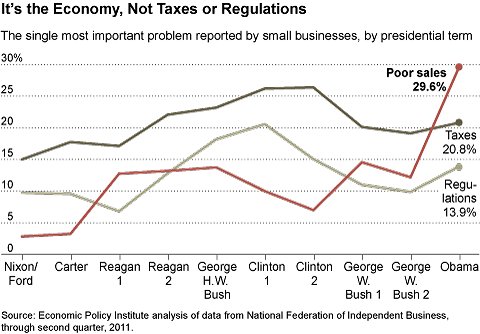The question seems to circle around whether the mere act of earning "too much" money is immoral - are people who do this somehow harming society and, if so, should government pursue remedial measures (aka "wealth redistribution").
With all respect, I think this illustrates our differences. I would agree with you, and the corporatism 'thing,' if the discussion was about "rich" having too much, and "poor' not enough ... an issue of morality or even civics based on the rights of individual citizens or even groups.
But, I think morality and even "class warfare" may not be an issue. The issue could also be that consumers are having less real dsposable income to spend, and thereby create less econ demand, because as a result of de-unionization and globalization, the market of capital to labor has been affected in way to make it different than it was in say ..... 1980. So, taxing profit in the form of dividends or retained corp earnings, or capital gains when stock is sold, and using the proceeds for things like healthcare and public higher education, to which all citizens have an equal chance to access.
You seem to be arguing expediency over morality. But I think wealth redistribution fails to achieve either of those goals.
What I find most interesting is the willingness of so many of the left to simply assume that wealthy people didn't earn their money and use that as an excuse to go after it. It raises a couple of important questions: first, what does it mean to 'earn' money? and second, doesn't it seem wrong to simply assume that everyone who accumulates a lot of wealth hasn't earned it?
No. To put it most clearly, I don't see any wealth redistribution occurring when the govt taxes healthcare providers, insurors, cap gains or retained corporate profits to pay for workers health care or education. It is in everyone's interest to have a workforce able to produce. If the labor market is not efficiently doing this, then the govt may affect the market to benefit all of us.






